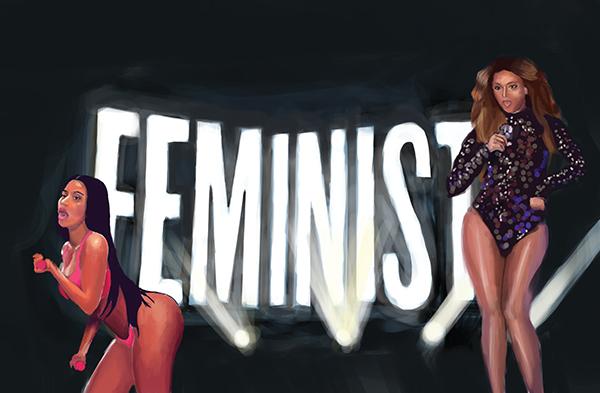I like big butts and I cannot lie. Specifically, my newfound affinity for the rubenesque posterior stems from the fact that this summer, women in entertainment — namely Beyoncé and Nicki Minaj — have been taking ownership of their aforementioned butts.
Beyoncé and Minaj’s recent works have been provocative, controversial and fabulous. These two artists are not naked girls whose sole existential purpose is to pleasure men. They are grown women and unapologetic for their bodies and sexualities. Through their songs and music videos, Beyoncé and Minaj have started a revolution of empowerment in the entertainment industry that has spread to girls everywhere.
Throughout her album, Beyoncé very openly discusses many different types of sex. By doing so, she breaks an important norm in the music industry: the idea that women are not allowed to express their feelings about sex. Though pop music is riddled with sexual messages, most songs and videos feature women as sexual props who are only there to shake their butts and look pretty at the command of men. Women who sing about sex are slutty, but men who do the same are praised.
Take for example, the controversial Robin Thicke music video for “Blurred Lines,” which portrays women as sexual objects and props for a song perpetuating rape culture. The tune was catchy, the girls were hot and most people absolutely didn’t care that Thicke was promoting sexual assault. When Beyoncé released “Partition” or Minaj dropped “Anaconda,” songs that promote woman empowerment rather than objectification, the female artists were labeled as sluts and the sexuality of the videos was used as a reason criticize the songs.
By breaking this norm of women not controlling their sex lives, Beyoncé takes great strides forward in the fight for the empowerment of women. Beyoncé is an influential artist, having recently won a lifetime achievement award from the VMA’s and is widely seen as one of the biggest faces in pop music. By taking the stage and telling everyone in a prominent way that the double standard needs to stop, Beyoncé can change the lives of a lot of young women.
Nicki Minaj, another female artist, chooses to represent her sex life and power in a much more aggressive and dominant manner. A self-identified feminist like Beyoncé, Minaj has repeatedly stated that she is not concerned with how much men like her. The artist pushes for racial and gender equality in the music industry, openly discussing her experiences as a black woman in hip hop.
Minaj is always rude and abrasive, rapping about her sexual prowess and dominance. In “Anaconda” she chops up a banana, which represents a phallic object, and slaps Drake’s hand away from her body. Minaj’s ownership of her sexuality comes through loud and clear in the track. She is in control of all sexual encounters, bragging about her conquests in the same way a man would. By continuously rapping about her big booty and how much she loves it while refusing to subject herself to the pleasure of men, Minaj takes her body back from objectifying songs like “Baby Got Back” in which men talk about how much they love butts. Instead, Minaj loves her own butt and doesn’t care whether you like it or not.
We are entering a new age of female empowerment. Women are taking ownership of their bodies and sex lives in all fields. By doing so in such a high-profile manner, Beyoncé and Minaj have already sparked a movement. In the weeks and months since “Anaconda” and “Partition” came out, more tracks have appeared in which female artists take ownership of their sexual identities, such as “All About That Bass” by Meghan Trainor and “Booty” by Jennifer Lopez. The music industry is transforming into a platform of change for women who want to send the message that their bodies and their sex lives are their own.



